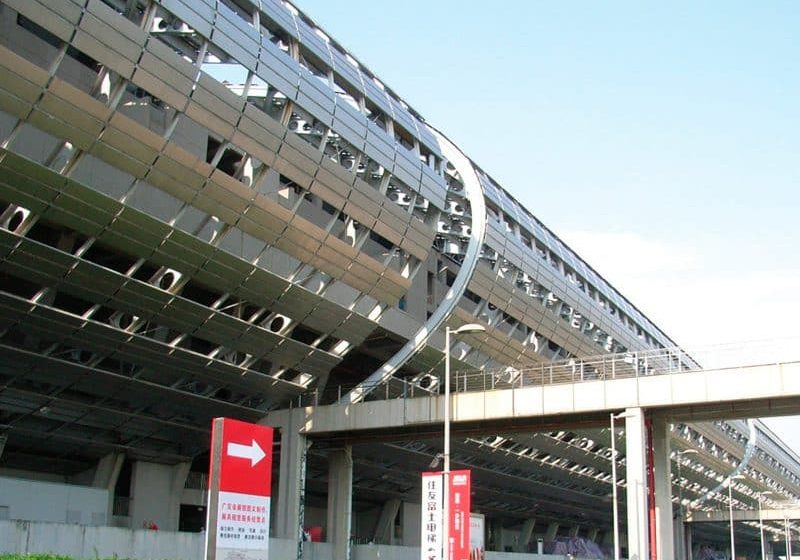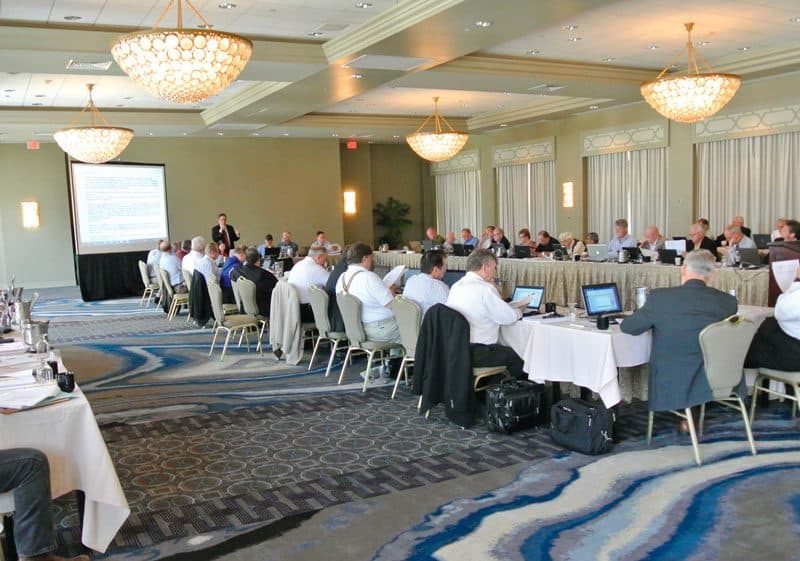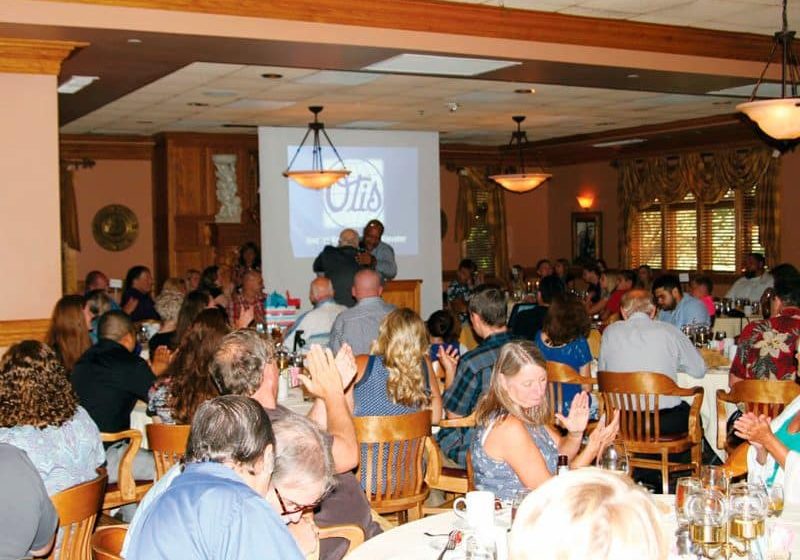KONE brings owner’s dream to life with all-glass elevator.
When the owners of a San Francisco project set their sights on an elevator made almost entirely of glass, they turned to KONE. “The customer was looking for a showpiece,” says KONE Project Manager Trent Lafrentz, “and the architect and consultant knew KONE was the company that could bring that dream to life.”
A five-stop KONE MonoSpace® elevator is at the heart of a completely renovated, century-old building in the city’s Financial District. Once a marble-cutting factory and later a candy warehouse, the property is now home to The Battery, a members-only social club. Amenities there include a gym, spa, restaurants, bars and guest rooms.
On the building’s lowest level, a koi pond laps up against the elevator’s back wall. “Riding the elevator, it’s as if you rise out of that pond up to the penthouse,” Lafrentz says. “And from the penthouse, which is also all glass, you can see the Transamerica Tower and Financial District. It’s a beautiful elevator, and the building owners are very proud of it.”
Uncommon Construction
The elevator’s walls, floor, doors, ceiling panels and counterweights are all made of glass. “You can see all the way down the elevator shaft,” Lafrentz says. The floor is a stainless-steel platform inlaid with glass sections. A layer of laminated glass floats over a layer of “smart glass” (glass with unique light-transmission properties), making the floor opaque when the elevator rises and clear on descents. Programmed LEDs change the ceiling’s color as the elevator moves, creating a dazzling after-dark display visible from the street.
The elevator’s counterweights, crafted of glass with a stainless-steel frame, command attention. Strips of LED lights make the counterweights visible from inside the cab and from viewing areas in the hoistway. A unique feature (“I don’t know of another application where they’ve been used,” Lafrentz says), the glass counterweights were manufactured in California.
Uncommon finishes are supported by proven technology: KONE touts its award-winning MonoSpace mid-rise machine-room-less (MRL) elevator as delivering superior ride quality and solid energy savings. “With a car weight of nearly 6,000 lb., weight was a real challenge,” Lafrentz says. “Energy efficiency is definitely a feature the owner liked.”
Focused Project Management
Involved early in the design phase, KONE orchestrated the complex project with comprehensive project management. Strict code requirements, tight scheduling, innovative sourcing, building renovation and a congested urban area demanded careful coordination.
“There was constant communication between the local design team, engineers, the factory, the customer and the subcontractors,” Lafrentz says. “That was a key to the project’s success. We made a plan for every aspect of the installation phase. As an example, the elevator’s glass panels were far too heavy for an installer to lift, so we found a special hoist with suction cups to lift the panels.”
Scheduling presented particular challenges. Initial design talks began in January 2011. The glass cab was designed and built at a KONE factory in Hyvinkää, Finland. With coordination with and collaboration by local authorities, the elevator work was successfully completed in March.
Building on Experience
A collaborative effort from KONE’s Major Projects team allowed KONE Americas to capitalize on extensive exposure to unique, demanding projects all over the world. “This project took advantage of experience we had with glass elevators elsewhere in the world, deep engineering expertise we have in the U.S. and Finland, and global supplier relationships,” notes Steve Gonzalez, Director, Major Projects. “Those things are critically important in highly custom projects — and harder to accomplish when you don’t have a global major projects organization.”
KONE complements that strength with a focus on achieving what the customer wants, Gonzalez says:
“In this case, the customer clearly wanted an elevator that would be a focal point and be almost completely transparent. Using our latest technology, KONE provided passengers with an enjoyable, smoother, quieter ride experience. We concentrated on the things we needed to do to accomplish that result.”
Installation
Installation of a glass elevator presented challenges of its own, including extreme space limitations, limited space for material delivery and storage and uniquely fragile components. “This was a once-in-a-lifetime elevator for many of the people working on it,” Lafrentz says. “Each glass panel weighed hundreds of pounds. The glass was very expensive, and acquisition lead time was quite lengthy.” In other words, breakage was not an option. “It was critical that everything be done with precision,” he says.
Other finishes — a painted metal and glass hoistway and entrances and doors with a custom painted, cladded surface — also required careful handling. Extensive coordination with all trades ensured sophisticated finishes were not damaged during installation. “This was an active construction site with a lot of subcontractors,” Lafrentz says. “Fortunately, the general contractor understood the challenges of a unique, high-profile elevator project.”
Then, there were the realities of installing an elevator built in Finland from European-based drawings in a building undergoing renovation in a congested part of San Francisco. “It can be a challenge to get everything to come together when there are that many suppliers involved,” Lafrentz notes. “You can do anything in a drawing, but it all has to come together in the hoistway — and it did.”
Get more of Elevator World. Sign up for our free e-newsletter.










